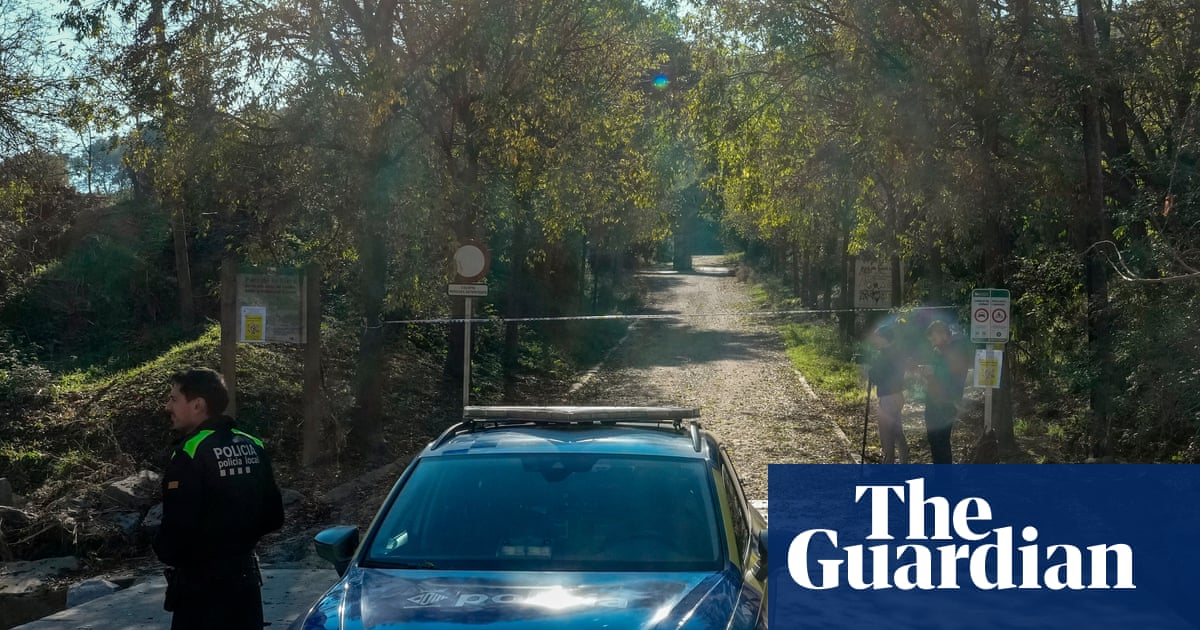The novelist Sarah Perry’s father-in-law, David, died of oesophageal cancer in 2022. This book tells the story of his dying, from the last time she saw him well, on a trip to Great Yarmouth at the end of summer, to his death less than two months later, just nine days after being diagnosed.
It’s not easy to account for what makes this book so special. Its main character is as unpromisingly ordinary as its title suggests, and some may even find him a little boring. David Perry is the kind of man who spends hours sorting his beloved stamp collection into albums with the aid of long-tipped forceps and magnifying glasses, or filling in his Sudoku puzzle books, or reading the latest copy of the Antiques Gazette, looking intently at porcelain dogs and chased silver punch-bowls.
He has lived the uneventful, comfortable life of an upwardly-mobile baby boomer born at the end of the second world war. He spends most of that life in Basildon, while commuting on the Fenchurch Street line to work as an industrial chemist. On family holidays in Yarmouth, he sets his deckchair 3ft from the sea but never goes in it. Not much to cloud his days, then, apart from caring for a disabled wife who dies 10 years before him. After downsizing to a bungalow in Norwich, he dies at 77 – a lifespan slightly short of the national average, but no tragedy there.
Partly, this book works its magic through the adamantine detail and quiet lyricism with which it recounts a particular, unrepeatable life. David’s Davidness – always eating a bowl of cereal before bed, hoarding Wagon Wheels, calling his artificial sweeteners “depth charges”, laughing with a half-private chuckle at his own bad jokes – comes off the page in sparks. The book perfectly catches a certain kind of clenched English male reserve, part shyness and part stubbornness. David only ever greets or says goodbye to his son with a handshake; they don’t even hug on the day he finds out he will die. He shows love, like many men of his generation, via punctiliousness, each January entering birthdays into a new wall calendar and then marking them with a tick once a card is sent. After his diagnosis he carefully writes, on the final page of this calendar, all his passwords and security details.
Mostly, though, what makes this book gem-like is that it succeeds in conveying the reality of death as this monumental, mythic thing that coexists surreally with the mundane world of council bin collections and neighbours hanging out their washing. Death, once it has decided to capture us, descends with the inevitability of gravity. Considering herself too sane for prophecies, Perry nonetheless notes that, as her father-in-law walked towards her shakily and confusedly in Norwich’s market square, she “knew immediately, with the cool and perfect certainty of arithmetic, that he was more or less a dead man”. The 48 days he then takes to die make her see that “death has a duration and an amplitude, with events as various and strange as those of a life”.
Along the way, the book becomes about something else – the care gifted by strangers who arrive miraculously, via form filling and phone calls, and then vanish for ever. Nurses and carers, with accents ranging from West Africa to Norfolk, turn up at the house to administer painkillers, fit syringe drivers or just keep the night watch over a dying man. Perry’s experience with doctors is more mixed. It makes her wonder at how “no other occupation entailed acts of service that sometimes resembled love, all carried out with such an extraordinary asymmetry of power”. One medic, shrugging at her while expertly tossing banana peel into the bin and then inserting something illegible on a form, stuns her with his insensitivity. But her anger quickly evaporates as she realises that this is just everyday thoughtlessness dizzily colliding with the brutal logic of mortality.
Perry balks at the well-meaning phrase “dignity in dying”. Her father-in-law’s dying feels so unavoidably undignified, a matter first of confusion and fear, then immobility and incontinence. But the dying body, as she describes it – the desiccating lips and hands, the skin the colour and texture of vellum parchment, the labourer’s hands now resembling “those of a Russian pianist” – is also transfiguring. She watches David change hour by hour into someone else entirely, a diminished but more majestic self. Dying emerges as both ordinary, almost like an unpleasant chore to be negotiated, and unfathomably strange – “these things not cancelling each other out as they ought to have done, but persisting in undiminished quantities, like a failure of simple maths”.
As a young, aspiring writer, Perry yearned for dramatic, painful experiences to give her something to write about. She wanted, she says, “to hoard rubies and lose them, and spill ink into the loss”. But here she has written beautifully and compellingly about the life of an unexceptional man, and an experience that is coming to all of us – and shown that there is no such thing as an ordinary life, or an ordinary death.
after newsletter promotion

 2 months ago
62
2 months ago
62

















































